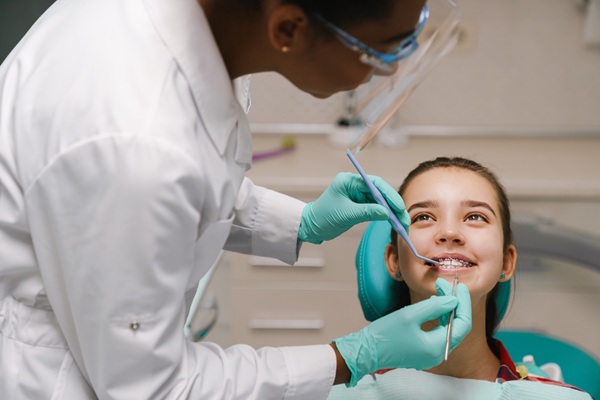Ask a General Dentist: What Does Saliva Do for Our Mouths?

A general dentist has a wealth of information on a variety of oral-health-related topics. It is the dentist's job to bestow this knowledge onto all patients, even for mouth functions that may be widely overlooked.
Saliva plays an important role in our mouths, and without it, our oral health would be a disaster. Education about saliva is important, and learning from an experienced general dentist is valuable for any dental patient wanting to better their oral health.
What is saliva made up of?
Saliva is a fluid substance formed in the mouths of animals and humans. Human saliva is composed of 99.5 percent water. The other half percent is a combination of electrolytes, mucus, white blood cells, enzymes and other antimicrobial agents naturally produced by the body. There are even small amounts of hydrogen peroxide, an antibacterial compound, found in saliva. The enzymes work with the water to fight bacteria and break down food.
What is the purpose of saliva in the mouth?
Saliva serves many important purposes in the mouth. For one, the enzymes in the fluid start the process of digestion before the food has even left the mouth. Those enzymes start to break down food the second they enter the mouth, working especially well on starches and fats.
Saliva serves as a rinsing agent for the teeth and washes them effectively after every meal and snack. The fluid breaks down food particles that can get stuck in between teeth. By making these crumbs smaller, it helps to prevent the formation of cavities. Tooth decay takes hold when residue and particles are leftover on tooth surfaces from eating or drinking. If saliva was not there to save the day, our teeth would be much more susceptible to cavities.
Harmful bacteria in the mouth are counteracted when there is a good amount of healthy saliva to dilute the bacteria. Bacteria feed off of carbohydrates in the mouth and produce acid as waste during digestion. This acid eats away at the enamel, and that is what causes tooth decay. Saliva carries leftover food particles away from the teeth and into the digestive system.
Another helpful characteristic of this vital fluid, saliva acts as a lubricating liquid. It wets food and allows easier swallowing. It also serves as a protector of the mucosal surfaces of the oral cavity and prevents dehydration of this tissue.
What is dry mouth?
Since saliva is mostly made of water, one sign of dehydration and other health issues is the presence of dry mouth or lack of sufficient saliva production. Saliva helps us digest and even taste food, and without it, the system comes to a grinding halt. Little to no saliva production affects more than just thirst.
Symptoms of dry mouth include cracked lips, sores at the corners of the mouth and a rough, dry tongue. Swallowing becomes more difficult, as does speaking. With decreased saliva, the mouth starts to go through some negative changes. Since the fluid is not able to flush the food particles and debris out of the mouth, it can cause bad breath. Feeling hoarse or a dry cough originating from a tickle in the throat could mean dry mouth.
The bottom line
At our general dentistry office, we strive to arm patients with knowledge. If you are experiencing any symptoms of dry mouth, it could mean other health issues are present. Make an appointment as soon as possible to get your mouth back to health.
Request an appointment here: https://www.bryancousindmd.com or call Cosmetic & Family Dentistry of the North Shore at (781) 443-8268 for an appointment in our Swampscott office.
Check out what others are saying about our services on Yelp: Read our Yelp reviews.
Recent Posts
Understanding the key differences between a dentist and an orthodontist can help patients determine which specialist they need for their oral health care. While both professionals focus on maintaining and improving oral health, their roles, training, and areas of expertise differ significantly. A dentist typically handles general dental care, while an orthodontist specializes in diagnosing…
A general dentist can relieve a toothache after a proper assessment. This type of dental problem is often accompanied by swelling. It may even occur with a migraine, fever, or earache. Tooth pain needs immediate treatment. Here are the details on what a general dentist can do for a toothache.Each toothache is different. That is…
Everyone should visit the general dentist twice a year. At these visits, the dentist can catch any oral health issues and treat them before they become more serious. During the visits, usually once a year, you will need x-rays to check on the parts of your mouth that your dentist can’t see with the naked…
Fixing a broken tooth right away is important. This dental damage may seem like nothing more than a cosmetic problem, but it can lead to terrible consequences. Seeing a dentist sooner rather than later can provide immediate relief. If you want to find out the treatments for a broken tooth and its complications, here are…


